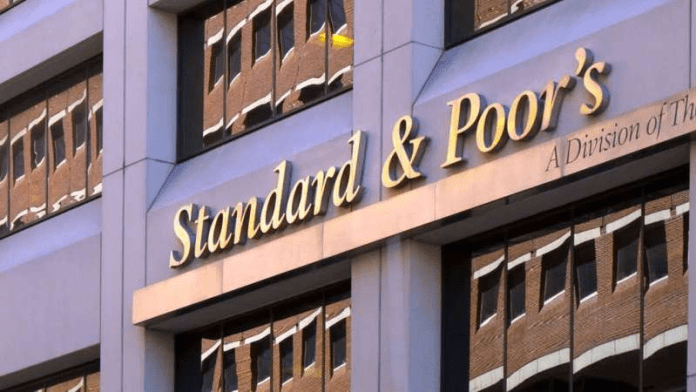The credit rating agency Standard & Poor’s (S&P) affirmed Kuwait’s long- and short-term rating at ‘A+/A-1’, with the outlook changed from negative to stable.
The agency expected that Kuwait will achieve a surplus of about 18 percent of GDP during 2022-2023, indicating that the country will benefit from high prices and oil production levels, which S&P expects to continue until the end of at least 2023, reports a local Arabic daily.
The agency also expected Kuwait’s economy to grow by 8 percent in 2022 and 5.5 percent in 2023. The agency estimated the break-even price of oil at about $75-80, which would allow Kuwait to replenish the liquidity of the previously depleted General Reserve Fund.
The agency stated that the scenario that it assumes is that the Kuwaiti government will adopt measures to diversify sources of funding over the next two years, so that the previous financial financing crisis does not recur with the depletion of liquidity in the General Reserve Fund, even if oil prices fall below the current levels, which the agency expects to happen in 2024-2025.
The agency pointed out that the scenario of downgrading Kuwait could occur if comprehensive and sustainable financing arrangements were not agreed upon over the next two or three years, and this could happen, for example, due to the ongoing tensions between the government and parliament, making the government unable to to implement reforms, pass a debt law, or allow other necessary budget financing mechanisms.
The sources added that the rating could be downgraded “if we conclude that the government will not have the ability to use the reserves of the Future Generations Fund to fund debt repayment needs, contrary to our current assumption.”
On the other hand, the agency confirmed that the rating could be raised if the government succeeded in implementing a comprehensive structure with a package of reforms aimed at improving financial financing mechanisms, diversifying the economy and reducing the non-oil deficit, considering that this scenario is unlikely within the next two or three years.
The sources stressed that the local risks associated with the emerging corona virus (Covid 19) pandemic have effectively decreased, as Kuwait has vaccinated nearly 85 percent of the population and all internal restrictions have been lifted to support economic activity in the non-oil sector. The sources said that the large accumulated government assets, equivalent to 370 percent of the gross domestic product, is the main factor that supports the sovereign ratings of Kuwait.
The sources said that Kuwait’s financial position remains a major rating force, noting that the total size of the sovereign wealth fund’s assets, including the Future Generations Fund, is still large, with the total assets (wealth) estimated at more than 470 percent of GDP by the end of 2021 and stressed that the sovereign rating reflects the strong conditions of government assets and the balance of payments, expecting that Kuwait’s net external credit position will reach 480 percent of GDP by the end of the year, and it is among the strongest rated sovereign countries.
It expected the current account of the balance of payments to record a surplus of about 21 percent of GDP during 2021, supported by the recovery of oil production prices and quantities, as well as the income of foreign investments managed by the Kuwait Investment Authority.
The expectations, the sources said, indicate that the average current account surplus will reach about 30% of GDP during 2022-2023, indicating that the expected annual inflation rate during the current year is 4 percent and is still lower than it is in most developed and emerging markets thanks to the large government support, especially for energy prices.

















